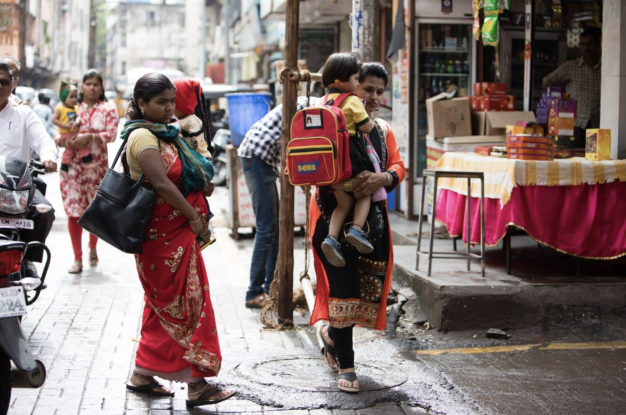
Support women for better early childhood development outcomes
Psychoanalyst Donald Winnicott once said: “There is no such thing as a baby… There is a baby and someone.” What he meant was that babies do not exist in isolation. The ‘someone’ he mentioned is the caregiver on whom the child is completely dependent – almost always the mother and in many cases other women of the family, especially in India.
This is why any conversation on early childhood development (ECD) is necessarily one on mothers and women too, writes Rushda Majeed of the Bernard van Leer Foundation.
It stands to reason that the quality of childcare is a function of the mother’s knowledge and motivation, and the support she has in her environment – from family to social services. Naturally, socioeconomic condition, literacy, the status of women in society etc., are huge factors too. Therefore, the needs of women – especially the underprivileged – must be addressed if improved ECD outcomes are to be achieved. That’s not to say that fathers don’t play a critical role in a child’s overall development – their involvement is a key factor.
Most ECD programmes fall short because they focus on children alone. The first 1,000 days of life are the most critical when it comes to brain development, and the quality of parenting is the single most important influence on it. Since the mother or a woman from the family is often the primary caregiver, it makes sense to focus on her too.
For better early childhood development results, put women first
Any framework of policies and programmes must be an integrated one that puts women at the centre. Some of its key components could be:
- Access to quality and affordable childcare can relieve women from the disproportionate burden of childcare. It will also open opportunities for them for more rewarding employment – vital to financial empowerment. The woman’s increased income will help not only the household but also benefit her children through a better fulfilment of their needs, healthcare and nutrition.
- The state must play a key role in creating an enabling environment through policy frameworks that boost women’s employment, reduce or eliminate gender discrimination, create or promote quality childcare centres. Such facilities enable women to become financially independent.
- The centres can double as hubs for parenting programmes that emphasise joint parental responsibility for childcare. They can also partner with non-governmental agencies to maximise service quality and delivery. This would have a significant impact on ECD outcomes.
- A key characteristic of the childcare centres should be convenience of location. This is a key determining factor in a woman’s ability to be employed. Proximity to the home or workplace is vital for working mothers.
- Social security through cash transfers for women from underprivileged sections would make a difference. Mostly, such women work in the informal sector and direct cash transfers would make childcare affordable. Income supplements are crucial for poor families because they help overcome obstacles to ECD.
- Infrastructure support through quick, easy and affordable transportation would enhance the opportunities available to women. Its positive impact on livelihood, would have a similar effect on nutrition and learning outcomes for their children.
By 2050, two-thirds of the world’s population will live in urban areas. For millions of women, the demands on their time – for paid work as well as for childcare – are only increasing. This dual responsibility results in them not fulfilling their potential at work and lowers the quality of care they provide to their children.
So, for better ECD results, put women first.
Rushda Majeed is responsible for the work of the Bernard van Leer Foundation (BvLF) in India.
The BvLF is an independent foundation working worldwide to inspire and inform large scale action to improve the health and well-being of babies, toddlers and the people who care for them. We provide financial support and expertise to partners in government, civil society and business to help test and scale effective services for young children and families.
This article first appeared on the foundation’s website.




